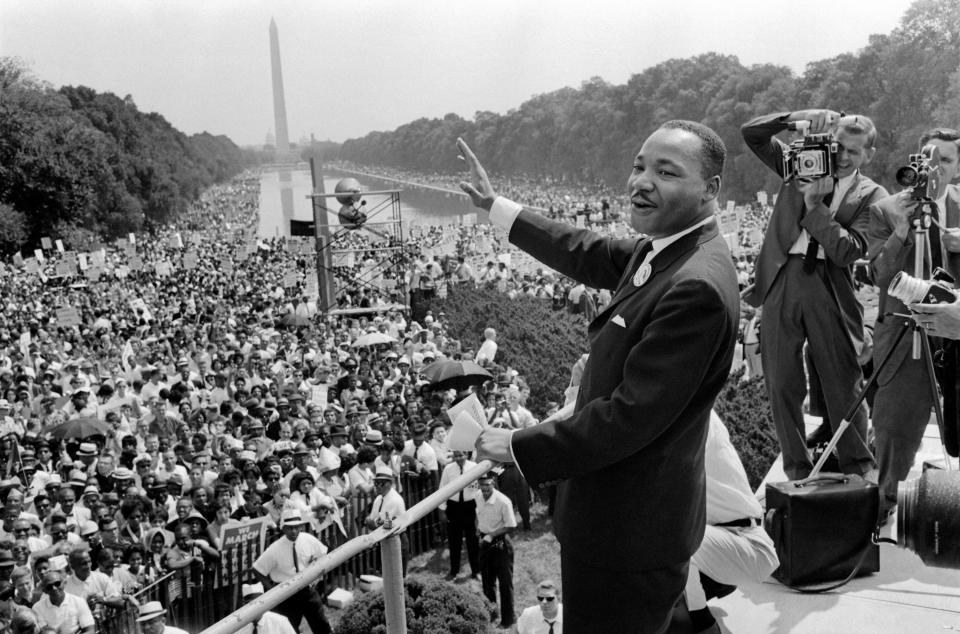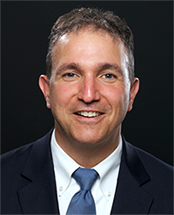This is how we must honor Martin Luther King's dream
- Oops!Something went wrong.Please try again later.
Monday marks the 60th anniversary of the 1963 “March on Washington for Jobs and Freedom.” Best remembered for the Rev. Dr. Martin Luther King Jr.’s powerful oratory, the event was a watershed moment in the fight for civil and human rights.
Indeed, it was there and then that King most famously laid out his bold vision for America — one framed as his dream for a better, more inclusive country. Referring to a key passage from one of our country’s founding documents, the Declaration of Independence, King proclaimed to the world, “I have a dream that one day this nation will rise up and live out the true meaning of its creed: We hold these truths to be self-evident, that all men are created equal.”
It was a strong, aspirational statement — one that set the tone and provided a framework for the work ahead.

Now, 60 years later, the good news is that there is widespread acceptance of that self-evident truth. In fact, it is generally a given that all people are created equal and that no individual — regardless of gender, culture, race, religion or disability status — is inherently better or worse than anyone else.
The bad news, however, is that there is far less acceptance of a harder, related truth — that although created equal, all people have not been treated equally. Gender bias. Ethnic bias. Racism. Antisemitism. Ableism. Name your poison, but there is no question that many people have been held back and held down by a toxic mix of nefarious other truths.
In this context, one of the most debated questions these days concerns the scope and method of racism: Simply stated, does systemic racism exist?
For many of us, the answer is clear: Yes, of course, racism is systemic. It is baked into our laws. It is embedded in our economy. It is hidden in many policies and practices that govern our local communities, educate our children and determine who has access to health care. And insidiously, it often infects the way we think and feel on many important levels.
‘Tell ’em about the dream, Martin!’: Memories from the crowd at MLK’s March on Washington
Granted, others have a different view. They know racism is wrong; they may denounce it when it rears its ugly head. But they do not accept the premise that racism has been a structural feature of life in the United States of America, nor do they believe it necessarily poses an existential threat.
Regardless of one’s perspective, this is an issue that needs to be discussed fully, thoughtfully and respectively.
Those who argue that systemic racism is real should do so without shaming those who disagree or making them feel guilty. After all, racism has been around since before the founding of our country — long before any of us were born — and it does not help to put people on the defensive unnecessarily.
Those who argue against the existence of systemic racism should do so without demagoguery or defamatory language. After all, everyone knows that racism exists and has always been a shameful part of an otherwise largely proud American story.
And regardless of one’s perspective, while we may not agree on exactly “who” or “what” is responsible for racism, we all need to take responsibility for ending it. We can discuss. We can debate. But at the end of the day, we need to come together around this common goal.
In the middle of his speech 60 years ago, King — who often spoke of the evils of systemic, structural racism — made it clear that the struggle for civil and human rights was absolutely necessary and would need to be sustained. “It would be fatal for the nation to overlook the urgency of the moment,” he explained. “Nineteen sixty-three is not an end, but a beginning.”
Honoring King’s dream, therefore, means acknowledging the hard, necessary work that still needs to be done and then actually doing it. Together.
Paul Aronsohn is a former mayor of Ridgewood and a current executive committee member of the Bergen County Branch of the NAACP.

This article originally appeared on NorthJersey.com: Martin Luther King Jr. I have a dream speech at 60 years

